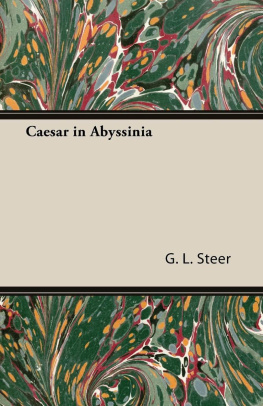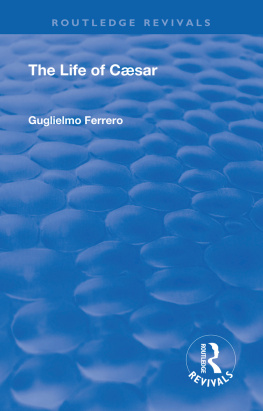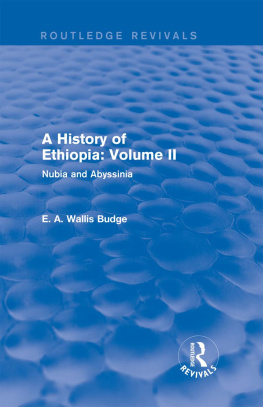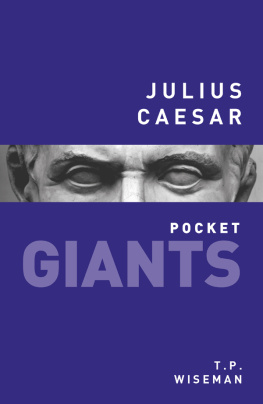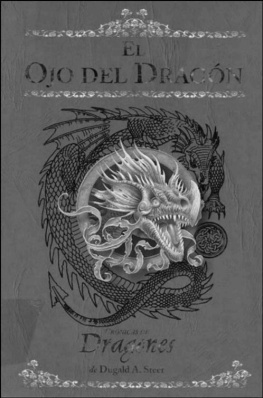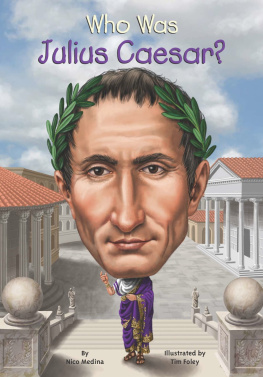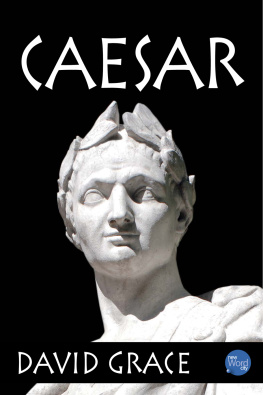INTRODUCTION
T HIS BOOK, which casts a narrow sidelight on an unimportant series of massacres known as the Italo-Ethiopian War, bears, I am sorry to say, a title which will disappoint many. Csar in Abyssinia conjures up a picture of cohorts, horsehair-crests and Commentaries, all centring round the great Julius himself ungasmasked in the field. But look where I might in Abyssinia, with the assistance of Holmes, Collins, Harrison, Lowenthal and the British Red Cross, I could never find the fellow. Afterwards the Military Correspondent of The Times explained to me that he was playing the part of a dynamo in Rome.
He compares ill with his rival, who handled an antiaircraft gun and a machine-gun against Europeans fitted with far superior weapons.
I have no desire, however, to belittle the military achievement of Italy in Ethiopia. I believe that an absurd excess of force was used; that considering the condition of the Italian Treasury the war might have been waged more cheaply, and that the war provides no index whatsoever of the behaviour of an Italian Army, even of the organisation of an Italian Army, fighting against an equal enemy.
The Italians, nevertheless, did reach their objective, Addis Ababa, within seven months of the outbreak of aggression.
My task is rather in this book to show what was the strength and spirit of the Ethiopian armies sent against a European Great Power. My conclusions are that they had no artillery, no aviation, a pathetic proportion of automatic weapons and modern rifles, and ammunition sufficient for two days modern battle. I have seen a child nation, ruled by a man who was both noble and intelligent, done brutally to death almost before it had begun to breathe.
The Italians do not figure much in these pages, which are more the study of the Ethiopian people under fire than of the mechanical means and processes used to destroy their resistance. The primary cause of their defeat was that they had no arms, and were allowed none. The secondary cause of their defeat was Italian air supremacy, exploited eventually by the spraying of mustard gas.* The great Ras said that they could not fight the heavens or the burning rain.
The Danakil expedition and the Gondar mechanised column had no effect upon the war or contact with the Ethiopians, therefore they are not mentioned here.
The bombardment of Harrar, registered as a hospitalisation centre in December, had no effect upon the war. All the Red Crosses in the town were hit and the material damage was great, but it was a purposeless operation and is therefore not mentioned here.
There is one thing which I must describe in this introduction, not in the text.
Addis Ababa was during the last two months of the war frequently reconnoitred by Italian aeroplanes, who also machine-gunned the aerodrome. The population became more and more nervous with each new raid. The object, of course, was to create popular tension.
On April 27 pamphlets were dropped on Addis Ababa which read:
People of Shoa, listen!
I am the head of the victorious Italian Army, and will enter Addis Ababa with the help of God. The Emperor and his First Army are useless and defeated. Gondar Sokota and Dessye are taken by us. We are masters of the Ogaden, and will enter Harrar within a few days. These leaflets should be a greeting to the Ethiopian people. I do not want the Christian Ethiopian people to be destroyed. We bring peace and civilisation.
Do not shed any blood among you. You who were at the front, go home to your land and possessions and continue your farming as before. Do not turn yourself against the police and those charged with the maintenance of order. Do not destroy the roads or oppose the advance of my Army, because we do not want your lives, your possessions, or your money. But if you destroy our roads or try to oppose the advance of my Army, then the Italian Army will destroy and kill without pity, the aeroplanes will massacre from the air and destroy everything that exists.
It was after the scattering of this pamphlet that the movement for individual security began which was to end in the sack of Addis Ababa. It was neither the breakdown of the central authoritywhich has broken down often in Ethiopian historynor the barbarians love of theft nor the black mans hatred of the white that caused the sack of Addis. It was the threat of gas from the air that demoralised its people. The crowds that gathered round Lady Bartons committee rooms for masks were evidence of that.
Precisely the same thing will happen in the capital of any European state that is defeated. War against the civilian population breaks it up into its warring parts.
It seems to me important that our leaders should understand this. Ethiopia is nearer to Europe than they think.
I owe a great debt of gratitude to The Times, who allowed me complete freedom and even free publicity in Ethiopia. Particularly, I am grateful that they woke me from my undogmatic slumbers, and showed me a path from which I shall not deviate.
In the unexpurgated phrase of General Queipo de Llano: All honour to such a grand paper.
Burgos, 1936.
* It will be noticed that Konovaloff does not mention gas. He is still in Addis.
MAPS
2.A DDIS A BABA
4.G ENERAL M AP OF A BYSSINIA
The Maps reproduced by kind permission of The Times.
Mrs. Colson, wife of Everett Colson, the Emperors financial adviser, liked to offer tea to the Addis journalists who visited the house for news at six oclock every evening. She made marvellous cakes, was nice and rather stout and slow, had white hogged hair and a way of drawling stories which put a vital fact in a comic setting. The humour was there, but Mrs. Colson did not care to press it.
It was 1933, Mrs. Colson dawdled forth. Mrs. Moosa, the Egyptian Consul-Generals wife, was taking little Michel to Victoria College in Cairo to school. Michel was a bright little boy. His mother was American, and he looked American too.
There was a nice Italian merchant on board from Mogadiscio. He made friends with Mrs. Moosaas Italians like to doand he told her that all the merchants in Mogadiscio had been ordered from Italy to buy nothing but stuff that was useful for warfood and lorries and such. He thought that she was going back to America.
He made friends with little Michel too, and the day before they arrived in Port Said Michel did something that the merchant did not like. Thats not the way a little American boy should behave, said the Italian. Im naat a little American boy, twanged Michel. I guess Im an Eegyptian.
Ow! said the Italian merchant, and his face fell.
Then they got off at Port Said. He didnt know they were going to Egypt and would send the story back to us.
That was the first time we knew the war was coming.

